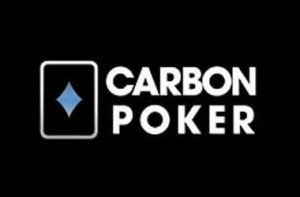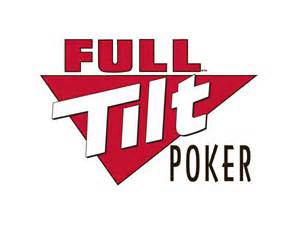Head Games: Dealing With Tilt And Poker’s Ups And Downs
The Pros: Jonathan Little, Tim West, and Noah Schwartz
Craig Tapscott: What are some good ways to deal with tilt at the poker table that have worked for you long-term?
Jonathan Little: I firmly believe that in order to control tilt, you have to figure out what tilts you and why. For example, some players get upset when they get unlucky, some get mad when the dealer makes an error, and others get angry when they make a mistake. The reasons for tilt are endless. I personally get somewhat tilted when I do something that is blatantly dumb, at least in my mind. In order to deal with this at the table, I write down the hand and make a point to forget about it until I review all of the hands from my session once I am done playing for the day. I then figure out why I went wrong and make a point to not let it happen again in the future.
It is mandatory to address the reasons you go on tilt in order to cure it. If you get mad when you get unlucky, you must accept that poker is a game where you will constantly get unlucky. I am shocked at the huge number of players who get angry when they get all-in with 70 percent equity and lose. It is as if they do not realize they are going to lose 30 percent of the time, and 30 percent of the time is a lot. Once you accept and embrace that this is an inherent part of the game, you will no longer tilt from it. If you get mad when the dealer makes a mistake, realize people make mistakes. Sometimes people have a bad day. Sometimes people are incompetent at their job. Everyone is not perfect. As for my tilt issue of getting mad at myself when I make an error, I had to accept that I am not perfect and that I will make mistakes. I make a point to better myself in every way possible and I work hard to think everything through such that my errors are kept to a minimum.
Another thing I do to alleviate tilt at the table is to listen to a short mp3 on my phone by hypnotist Elliot Roe that calms me down and gets my mind back in a serene state. It helps me relax and breathe, which are two things people fail to do when tilting.
Tim West: If I have adversity at the table I like to slow things down. I might do some push-ups or even grab a healthy drink. I think the best advice I can give for tilt at the table is to stay in the moment. Strategizing is one thing, but too much anticipation or dwelling on past hands or events can do nothing but negatively affect your mood and decision making.
Noah Schwartz: Discussing tilt and the various things that may cause it can be extremely tricky, because it can resemble a 24-hour stomach bug that just creeps up on you out of nowhere (laughs).
When playing cards, there are a lot of different instances that can cause a person to tilt, but usually the number one culprit is getting unlucky in a hand. But when you look at it closely, that is something that is completely inevitable.
In my opinion there are several positive ways to combat tilt. The first is to try your best at remaining cool, calm, and collected. Because upsetting yourself and going on further tilt is only going to lead to worse things. The mind is such a powerful tool. When you are tilting your mind isn’t processing information in a way in which you need it to for good decisions. If this approach is hard for you, another way is to simply take a break for a couple of minutes away from the table and just clear your head. This enables you to not make a bad situation even worse.
When players are in what I like to call tilt mode, they tend to make irrational decisions, which on the poker table will lead to one’s demise. My advice is to just take a few deep breaths, allow the oxygen to flow to the brain, and you’ll be on the right path to coping with full blown tilt.
Craig Tapscott: Poker can be a very brutal and disheartening game at times. How do you deal with the ups and downs of a poker life on a daily basis?
Jonathan Little: You must accept that sometimes you will win and sometimes you will lose when you play poker. Most people feel as if they are excellent at the game, whereas in reality most poker players are long term losers. They think they should win most of the time when they play because they think they are superior to their opponents. Of course, if you are a long term loser, you should expect to lose more often than not. If you do not keep records, play in games with a huge rake, and constantly have to reload, you are a long term loser. You can either accept this fact or work diligently at the game.
If you are a winner at the game, you must keep a huge bankroll and a huge nest egg on the side to pay your day-to-day expenses. One of the most useful things I did when coming up in the poker world was to keep my poker money and my life money totally separate. And I made a point to play only games I was properly bankrolled for. For live tournaments, you need at least 100 buy-ins in your bankroll. If you are playing $1,000 tournaments with $20,000 to your name, you must accept that you are degenerate gambling, even if you are confident you are a long term winner in the games. Once you know you are a long term winner who is constantly working to improve his game and you are also properly bankrolled, you will be well on your way to not caring at all about the standard swings that occur on a daily basis.
Tim West: I used to weigh about 280 pounds, and at that time I honestly didn’t care about health or prosperity in my life. All I cared about was having fun, playing poker tournaments, and eating room service. But at this point in my life’s journey I believe the best way to handle the stress and turmoil of poker is to prepare myself both physically and mentally. One way I do this is by making sure I exercise on a regular basis now. In addition, I pay attention to what I eat and consume nutrition that I take pride in and know is healthy for me. You can occasionally indulge yourself, but you must also find a balance.
Through my eight years playing poker seriously, both live and online, I have gained a lot of perspective in this world. When I hear people complaining about mundane things like congested traffic or a bad beat on the river, it reminds me that no matter what (barring a true life tragedy) we are extremely lucky to be breathing and taking a new step each and every day. In summary, nutrition, exercise, perspective, and family is what keeps a smile on my face every day no matter what I encounter. So you take a bad beat at the table. Get up, take a breath, and count your blessings.
Noah Schwartz: When talking about the high and lows in poker, it is analogous to a roller coaster, and being able to deal with that variance is something that takes time adjusting to and getting used to.
Let’s first discuss the lows and struggling for a given period of time, because I know it is something for the most part at one point or another is inescapable.
Take cash games as an example. One thing I have really enforced for myself when things are not going my way, no matter how hard I try, is to set a maximum loss or stopping point. In other words, I limit my exposure to a number I am completely comfortable with that won’t have an impact on me later that night or the next day or week. So this way when I am in a funk I make sure I don’t dig myself into a black hole. Another thing I do a lot to deal with the lows is go to a great spa to seek some type of mental and physical healing and mainly to get my mind off things and rest.
When we talk about the other end of the spectrum, I think Napoleon Bonaparte said it best, “the most dangerous moment comes with victory.” And it makes perfect sense when you think about it. I think what he meant by this was that the highs tend to cloud our judgment and provide our ego with this fuel that enables us to be more prideful and arrogant. So that when we come down off those highs it causes us to easily crash and burn. That is why when I am on a huge upswing in poker and things are amazing, I just take the time to bask in it. Why? Because I know around the next turn there is going to be a downswing or a low period. This is why it is so important to live in the now. That is what poker is all about in my opinion; being aware of the ebbs and flows of the game and learning to approach them more consciously. ♠










